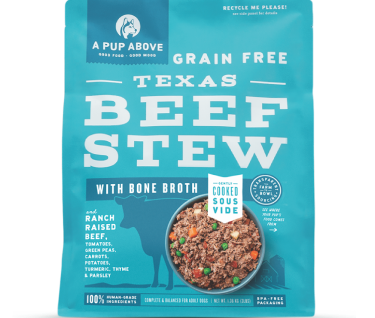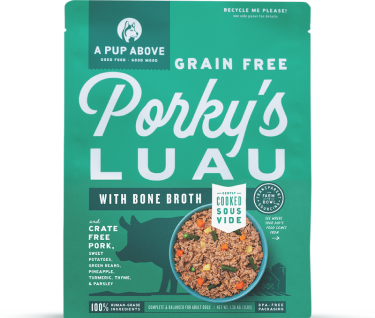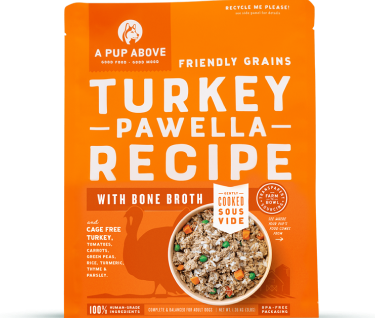
We understand that the health of our furry family members is paramount, including being informed about serious health conditions like kidney failure in dogs. Kidney failure, whether acute or chronic, can significantly impact our beloved pups' lives.
It's a condition that often goes unnoticed until it becomes severe, making awareness and early detection vital. It’s important to know the signs, treatment, and prevention of canine kidney failure.
As always, our goal is to provide you with reliable and understandable information, helping you make the best decisions for your four-legged companions. Let's embark on this journey together to ensure our dogs lead the happiest, healthiest lives possible.
How Is Kidney Function Understood in Dogs?
The kidneys play a crucial role in your dog's overall health. These bean-shaped organs are powerhouses in regulating waste products, maintaining electrolyte balance, and managing hydration.
They act as natural filters, removing toxins from the bloodstream while retaining essential nutrients. Think of them as diligent caretakers, working tirelessly to ensure your dog's internal environment is stable and healthy.
When the kidneys function well, they contribute significantly to your pup's vitality and well-being. Understanding how these vital organs work helps us appreciate why maintaining their health is so important.
What Are the Different Types of Kidney Failure in Dogs?
Kidney failure in dogs comes in two main forms: acute and chronic. Acute kidney failure occurs suddenly, often triggered by external factors such as ingestion of toxic substances like antifreeze or exposure to infectious diseases like leptospirosis. It's a rapid decline in kidney function that requires immediate attention.
On the other hand, chronic kidney disease (CKD), also known as chronic renal failure, develops over time. It's often a result of age-related wear and tear, underlying health issues, or genetic predispositions. While chronic kidney disease is a progressive condition, early detection can make a significant difference in managing it effectively.
What Are the Signs of Kidney Disease in Dogs?
Identifying the signs of kidney disease in dogs is a vital step in securing their health and happiness. Here are some key indicators to watch out for:
- Weight Loss and Loss of Appetite: These are often the first signs pet parents notice. A decrease in appetite can lead to weight loss, signaling that something isn't right.
- Changes in Urination: Increased frequency, quantity, or difficulty in urinating can indicate kidney problems. Conversely, less urination may be a concern.
- Bad Breath and Oral Health Issues: A buildup of waste products can cause a distinct, unpleasant odor from your dog's mouth.
- Lethargy: Dogs with kidney issues may exhibit a general lack of energy or interest in activities they once enjoyed.
- Vomiting and Diarrhea: These symptoms can be signs of toxicity due to the kidney's inability to filter out harmful substances effectively.
How Can Kidney Issues Be Diagnosed?
When it comes to our furry friends, understanding the “why” and “how” of their health is just as important as knowing what to do. Diagnosing kidney disease in dogs typically starts with a thorough examination by your vet.
Blood tests play a key role in this process, measuring levels of urea, creatinine, and red blood cells to assess kidney function. These tests help in detecting any abnormalities that might indicate kidney problems.
It's not just about looking at the kidneys, though. Vets also check for underlying causes that could contribute to kidney issues, such as dental disease or urinary tract infections.
These are often silent culprits that can exacerbate kidney conditions. Understanding the full picture helps in tailoring the right treatment plan for your pup, ensuring they get the best possible care.
What Are the Treatment Options for Kidney Failure?
Treating kidney failure in dogs involves a multifaceted approach. Fluid therapy is commonly used to help flush out toxins, maintain hydration, and support kidney function. In more severe cases, dialysis might be necessary to artificially remove waste products from the blood.
Medications can also be prescribed to manage blood pressure and other related symptoms. But let's not forget the power of nutrition in managing your pup’s overall health. A well-balanced diet is crucial, and this is where our fresh, human-grade meals at A Pup Above come into play.
Our meals are crafted to support overall health, with controlled phosphorus and potassium levels, which are vital for kidney health in dogs. It's about providing nourishment that caters to your dog's specific health needs, seamlessly blending care and culinary delight.
How Can You Manage Chronic Kidney Disease in Dogs?
Managing chronic kidney disease (CKD) in dogs is a commitment to their long-term health and comfort.
Here’s how you can make this journey as smooth as possible for your beloved pet:
Consistent Monitoring and Regular Vet Visits
Keeping a close eye on your dog's health is crucial. Regular check-ups allow for adjustments in treatment and management strategies, ensuring that your dog’s needs are met as the condition progresses.
Adequate Hydration
Ensuring your dog has continuous access to fresh water is essential. It helps the kidneys flush out toxins and keeps your dog hydrated, which is particularly important for pets with kidney disease.
Medications and Supplements
Depending on your dog's specific needs, your vet may prescribe medications to control blood pressure, reduce protein loss in urine, and manage other symptoms. Supplements might also be recommended to support kidney function.
Creating a Comfortable Environment
Dogs with CKD may have days when they feel tired or unwell. Providing a cozy, stress-free environment can make a big difference in their comfort and well-being.
Is It Possible To Prevent Kidney Problems in Dogs?
Preventing kidney problems is an integral part of caring for your dog’s overall health. While not all causes of kidney disease can be prevented, there are steps you can take to reduce the risk:
- Avoid Exposure to Toxins: Keep harmful substances, like antifreeze and certain medications, out of reach. Be mindful of your dog’s environment, both indoors and outdoors.
- Maintain Oral Health: Dental health is more connected to kidney health than many pet parents realize. Regular dental check-ups and cleanings can prevent bacteria in the mouth from entering the bloodstream and affecting the kidneys.
- Provide a Balanced Diet: A nutritious, balanced diet supports overall health, including kidney function. Avoid feeding your dog human foods that are harmful to their kidneys, like grapes and chocolate.
- Ensure Regular Exercise: Regular physical activity helps maintain a healthy weight and good circulation, both of which support kidney health.
- Annual Vet Check-Ups: Regular health screenings can catch kidney issues early before they become serious. Annual blood and urine tests are key for early detection.
Caring for a dog with kidney problems or working to prevent them altogether is a journey of love and dedication. By understanding the signs, knowing the treatment options, and taking preventative measures, you can help ensure your dog lives a happy, healthy life for as long as possible.
A Final Word
As we wrap up our discussion on canine kidney failure, we want to leave you with a few key takeaways. First and foremost, understanding your dog's kidneys and their function is crucial for early detection of any loss of kidney function.
Regular veterinary care, including routine check-ups, is essential for monitoring clinical signs and maintaining your dog's overall quality of life. Remember, early intervention can make a significant difference in managing kidney diseases.
By being attentive to the health of your furry friend and responding promptly to any signs of kidney issues, you’re taking proactive steps toward ensuring their happiness and well-being.
In the end, it's all about cherishing and nurturing the bond you share with your beloved pet, and at A Pup Above, we're here to support you on this journey every step of the way.
Sources:
Kidney Disease and Renal Failure in Dogs | Blue Cross
Kidney Disease in Dogs: Signs, Symptoms, and Treatment | American Kennel Club
Chronic Kidney Disease in Dogs and Cats – What Pet Owners Need to Know | Morris Animal Foundation
















